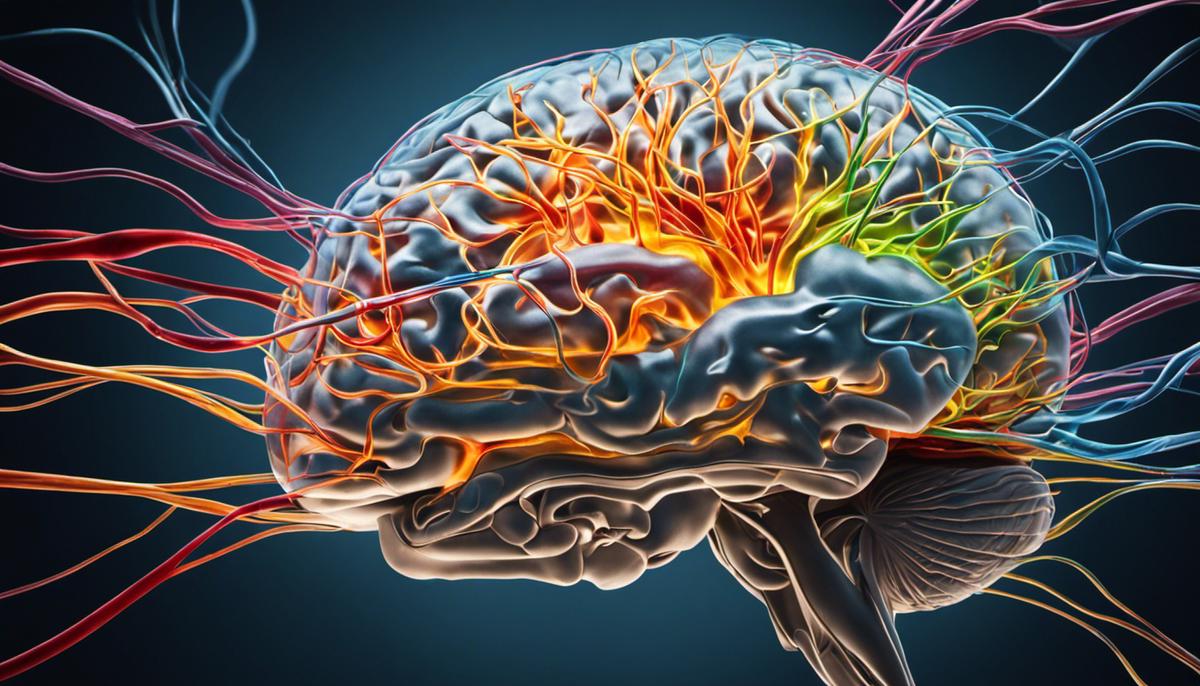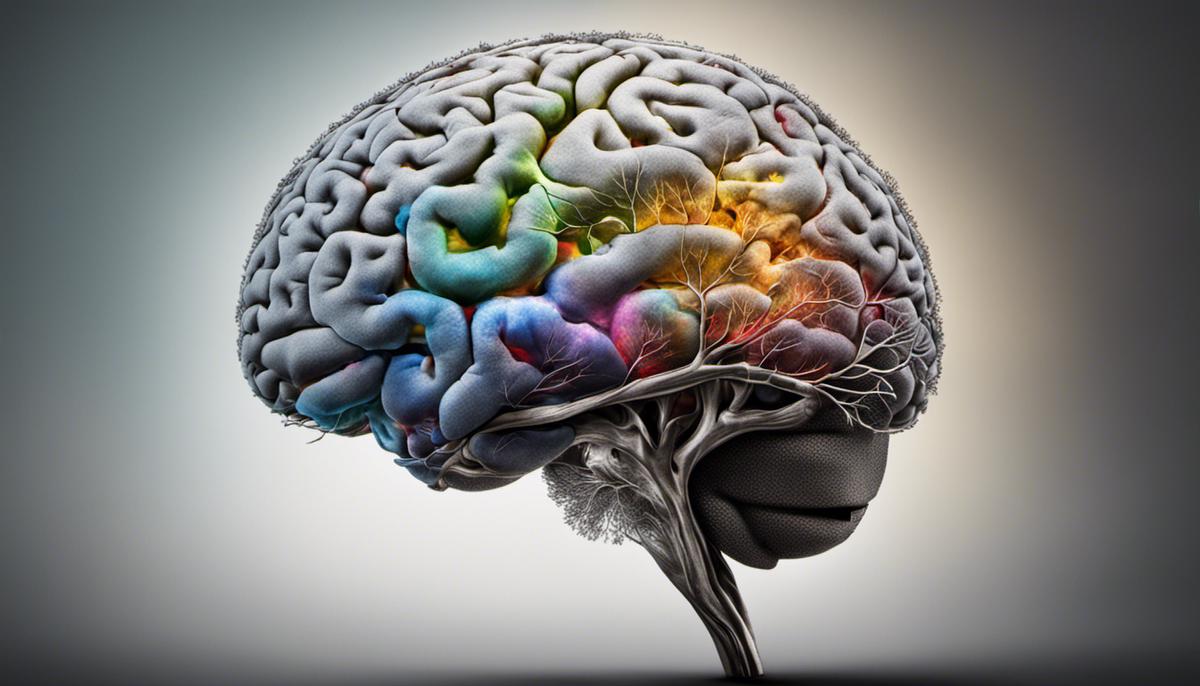In an age where memory disorders like dementia persist as some of the most challenging public health issues, understanding the significance of maintaining brain health becomes a subject of increasing importance. This piece delves into the intricacies of dementia, a complex neurological disorder that primarily corrodes memory, thinking, and social abilities. A foray into the phenomenon of neuroplasticity underscores the brain’s impressive capacity for adaptation and flexibility, a factor immensely helpful in the prevention of cognitive decline. It also explores the potential potency of mental exercises in fostering neuroplasticity and enhancing brain health, offering a closer look at specific mental exercises and their distinct impacts on cognitive resilience. Finally, it anticipates future directions in this critical area of study.
Table of Contents
Understanding Dementia
Unraveling the Enigma of Dementia and its Impact on Cognitive Functions
The labyrinthine world of neurology opens us up to a vast array of complexities and quandaries, and none baffle the scientific realm more than dementia, a far-reaching term encompassing several neurological disorders that interfere with one’s ability to think, interact socially, and function independently. As the records witness an upsurge in its incidence, it becomes paramount to delve deeper into the enigma to comprehend its nature and effects on cognitive functions.
Dementia is a progressive condition predominantly affecting the older demographic, characterized by a decline in cognitive abilities beyond what is considered a part of regular aging. This cerebral impairment affects various realms of cognitive function including memory, attention, language, and problem-solving abilities.
The different forms of dementia, like Alzheimer’s, vascular dementia, and Lewy body dementia, each carry a unique behavioral footprint. However, common among these types is the shared pathogenesis—decimation of brain cells, leading to its eventual compromised performance.
Memory loss remains synonymous with dementia, given its striking and often initial symptom manifestation. As the brain cells degenerate or suffer damage, one might observe a relentless erosion of short-term memory, impeding the transition of memories from short-term to long-term storage. This results in the inability to recall new information and severe cases might even strip away the individual’s personal history.
Language and communication skills also fall prey to the debilities of dementia. Aphasia, a common manifestation in Alzheimer’s patients, brings about the struggle to locate appropriate words, inhibit speech fluency, even deteriorating to an extent where comprehension of everyday language becomes arduous.
The extensive cognitive impairment extends to attention and concentration as well. Simplistic tasks demanding these faculties, such as reading a book or maintaining a conversation, can present herculean challenges to those affected by dementia.
One of the most striking yet underrated alterations in cognitive function due to dementia is the distortion of spatial and visual perception. Gauging distance, distinguishing colors, navigating through familiar territories, all become daunting and exhausting endeavors, liberating a disoriented individual.
Moreover, dementia embarks upon an extensive alteration in the executive functions such as planning, organizing, and decision-making abilities. An individual might exhibit an unprecedented change in personality and behavior, and neglect personal safety and hygiene.
Dementia stands as a torrential challenge to science and a heart-wrenching reality to the affected individuals and families. While it remains crucial to provide personalized care to enhance the quality of life, intense research and advancements in neurology hold the potential to illuminate newer aspects of this complex labyrinth.

Photo by jwwphotography on Unsplash
Role of Brain Plasticity
Neuroplasticity, often referred to as brain plasticity, is a term used to describe the brain’s propensity for physical change throughout the lifespan. In essence, the brain’s architecture is not irrevocably solidified, but rather flexible, capable of strengthening, altering, or creating new neural pathways in response to experiences, occurrences, or learning. Understanding such ubiquitous, multifarious nature of the brain is vital in the unfolding narrative of dementia prevention.
The premise of neuroplasticity lends a constructive lens to aging, posing aging as not an inevitable decline but a window for potential growth and transformation. This aligns well with the concept of cognitive reserve, an essential aspect in understanding dementia prevention. Cognitive reserve refers to the brain’s resilience, its capacity to outmaneuver disruptions, and maintain functionality despite any neurological damage.
Engaging in cognitively stimulating activities throughout life develops and fortifies this reserve, leading to enhanced brain health and reduced risk of dementia. Akin to a buffer, a robust cognitive reserve can effectively mitigate, delay or sometimes even preclude the onset of dementia symptoms. These activities range from intellectually demanding careers, education, and hobbies to mentally stimulating puzzles and regular social engagement. All primarily aim at forming new, as well as stimulating existing, neural networks.
Earlier, the loss of neurons was deemed to be a point of no return. Today, a stark shift in this notion is owed to neurogenesis – the process where new neurons are produced in certain brain areas, even during adulthood. Recent research posits that fostering conditions apt for neurogenesis could contribute considerably in preventing dementia. Activities inciting neurogenesis range from exercise, a balanced diet, sufficient sleep, to avoidance of chronic stress and toxin exposure. Hence, potentially inhibiting cognitive decline and contributing to dementia prevention.
While neuroplasticity and neurogenesis pose promises in the context of dementia prevention, the co-existence of synapse degeneration, prevalent in Alzheimer’s – a major type of dementia, poses a monumental challenge. Synapses are junctions where neurons communicate, central to cognitive functions. Alzheimer’s disease manifests synaptic failure before actual neuronal loss, implying synaptic strength as a critical factor in dementia prevention.
Emerging research indicates the role of specific proteins in synapse strengthening and the possibility of combating synaptic failure – a probable breakthrough in Alzheimer’s treatment. However, the complexity of these neuronal systems and their interconnections necessitate continuous in-depth research.
In conclusion, the plastic nature of the human brain opens up potential avenues for dementia prevention and underscores the necessity of maintaining cognitive health across the lifespan. However, fully unraveling these paths, particularly in the context of synaptic health, requires consistent research efforts and deeper comprehension of the human brain and its functioning.

Mental Exercises and Brain Health
The extensive research in neuroscience and neurology has brought to light the substantial role of mental exercises in facilitating brain health and potentially preventing dementia. This paradigm shift from a formerly established notion of a static brain to a dynamic, malleable organ underscores the importance of constant cognitive stimulation in aging individuals.
Mental exercises, including various cognitive activities such as puzzle-solving, reading, and engaging in mentally stimulating hobbies such as chess, serve as an impetus for cognitive reserve enhancement. Once believed to be a fixed entity, cognitive reserve now is perceived as an expandable phenonemon, given the right conditions and stimuli. A study by Stern (2009) showed that individuals with a higher cognitive reserve demonstrated a slower progression of dementia symptoms compared to those with a lower reserve, even though both groups had similar levels of brain pathology.
Alongside the potential impact on cognitive reserve augmentation, mental exercises can also induce neurogenesis – the formation of new neurons. This is particularly noteworthy because adult neurogenesis is believed to decline substantially with age and has been linked to cognitive decline with dementia. A groundbreaking study by Moreno-Jiménez et al., (2019), found that cognitive stimulation, through environmental enrichment, could reinstate adult neurogenesis in an Alzheimer’s disease model. These promising findings suggest that mental exercises could be an essential tool in countering neurodegenerative processes.
The role of mental exercises extends beyond neurogenesis and cognitive reserve, being also pivotal in maintaining synaptic strength. Synapses, the core components in neuronal communication, weaken with age and neurological diseases such as Alzheimer’s – a common cause of dementia. However, research has suggested that mental stimulation can bolster synaptic strength, thus possibly impeding the progression of dementia. A study by Li et al., (2003), found that environmental enrichment, a form of intense mental activity, could significantly increase synaptic density in the cerebral cortex of rodents.
It’s paramount to acknowledge the complexity of the neuronal systems and the multifaceted nature of dementia. However, the mounting evidence supports the active role of mental exercises in facilitating brain health and considering it as a practical tool for dementia prevention. Over and above this, there’s a resounding call for continued research to unearth more about the intricacies of the brain and its functioning. It is through this endeavor that one can potentially gain a more holistic understanding of dementia and devise strategies to alleviate its toll on humanity.
In conclusion, the richness embedded within mental exercises and their potential impact on the brain’s health substantiate the increasing recognition of this field. It provides newfound hope for those striving to mitigate the risk of dementia and a fresh perspective on dementia prevention strategies. The future beckons with intriguing possibilities, as science continues to navigate the brain’s labyrinth, unraveling more of its enigma and creating advancements in brain health.

Specific Mental Exercises and Their Impact
Examining the Impact of Mental Exercises on Dementia Prevention
Investigation continues into multifarious mental exercises and their potential to significantly impact dementia prevention. Grounded in the concept of cognitive reserve, these exercises strengthen the brain’s capacity to resist neurodegenerative damage.
A particularly promising area of focus is cognitive training, a structured set of activities designed to enhance cognitive functions such as memory, attentional control, and problem-solving. Several noteworthy studies point towards the efficacy of such training in delaying cognitive decline observable in dementia. Reading, puzzle-solving, and learning new skills are examples of effective cognitive training exercises that can be seamlessly integrated into everyday life.
Likewise, mindfulness-based practices like meditation may play a vital role in dementia prevention. These practices, epitomizing the concept of attention control training, encourage sustained focused attention, supporting cognitive reserve enhancement. By channeling concentration purposefully, individuals can potentially enhance their synaptic strength and, consequently, cognitive health.
Cardiovascular exercise also proves its worth in the sphere of dementia prevention. It encourages neurogenesis, especially in the hippocampus, the brain’s memory center often impaired in Alzheimer’s disease. While not inherently a mental exercise, the cognitive engagement during physical activity augments its neuro-protective effects.
Another encouraging practice in dementia prevention is bilingualism. Engaging in multilingual activities demands switching among linguistic systems, benefiting executive functions and cognitive control, and thus fortifying the cognitive reserve.
Furthermore, computerized brain-training programs that integrate various cognitive tasks hold promising potential. Although their efficacy remains under scrutiny, initial findings suggest that they might delay the onset of dementia symptoms by enhancing cognitive reserve and synaptic strength.
Drawing on the potent concept of transfer of learning, these diversified mental exercises can have synergistic effects on various cognitive domains, formidably protecting the brain from dementia. Nonetheless, it must be conceded that the relationship between mental exercises and dementia prevention, while apparent, is not unidirectional. The deeply enigmatic nature of the human brain necessitates further investigative endeavors to fully comprehend and amplify these effects.
Moreover, it is important to stress individual differences and the personalized approach in combating dementia. Given the heterogeneity of the brain’s response to different stimuli, it is paramount that individuals engage in the mental exercise most attuned to their cognitive and social needs. For instance, a musician might accrue more neuro-protective benefits from refining their musical skills than from learning a new language.
Finally, amidst an ever-advancing technological age, innovative approaches are being developed to integrate mental exercises into daily routines. Virtual reality-based cognitive interventions, for example, show promise in immersively engaging cognitive functions and fortifying cognitive reserve. These brave new frontiers yet unexplored may hold the keys to mitigating the risk and reversing the course of dementia.
In conclusion, cognitive training, mindfulness practices, bilingualism, physical activity, and computerized brain-training programs are among several preventive strategies promoting cognitive reserve and synaptic strength, hence staving off dementia’s advancement. Still, the labyrinthine nature of the brain demands relentless research endeavor for the effective prevention and treatment of this devastating disorder.

Future Directions in Research
The study of dementia spans multiple fields, from neuroscience to social work, and encompasses varied approaches. Despite substantial progress made in some areas, several pertinent questions remain unanswered. This necessitates continuous explorations to expand our understanding and adapt our prevention strategies.
One of these unanswered questions pertains to causality. While strides have been made in our understanding of risk factors for dementia, the exact cause or sets of causes remain elusive for many types of dementia. Genetic factors, comorbidities such as hypertension, diabetes, obesity, and lifestyle choices play a role, but what is the precise combination that triggers the onset of the disease in various patients?
Additionally, the role of inflammation is a burgeoning area of interest. While it is evident that there is substantial neuroinflammation in individuals with various types of dementia, establishing whether this inflammation is a cause or a result of the disease is of paramount importance. Unraveling this puzzle could have significant implications for future treatment and prevention strategies.
Another critical area of inquiry is the role of sex and gender in dementia. There has been an observed disproportionate impact of dementia on women both in terms of prevalence and as caregivers. Unraveling the biological, environmental, and sociocultural contributors to this disparity could contribute significantly to more equitable prevention and care interventions.
From a prevention perspective, there is increased interest in developing lifestyle-based intervention strategies that are scalable and practical for implementation on a population level. Developing evidence-based guidelines that encompass dietary choices, physical activity, mental health, and social engagement measures offer promising possibilities. Refining these interventions to ensure they cater to differing personal circumstances, such as the location of residence or ethnic background of individuals, can maximize their effectiveness.
Understanding aging in the context of dementia is another uncharted territory. Most individuals affected by dementia are aged 65 and over. Research is needed to understand why some individuals develop dementia symptoms as they age, while others do not. Is it determined by genetic predisposition, lifestyle choices, or other environmental factors?
It is clear that dementia, despite decades of investigations, remains laden with unanswered questions. These questions provide the building blocks for future research directions. In the quest to combat dementia, innovative technologies such as artificial intelligence, advanced neuroimaging techniques, and stem cell therapies may hold the key to significant breakthroughs.
Artificial intelligence could offer invaluable support in early diagnosis, which is vital given that preventative measures are most effective in the early stages of dementia. Advanced neuroimaging techniques could further elucidate the underlying pathological processes of dementia at different stages. Enhancing cognition and slowing cognitive decline through stem cell therapy offers another compelling pathway for future consideration.
To augment future research, the need for continued investment in healthcare infrastructures, collaborative and interdisciplinary research, and the translation of research findings into practical prevention tools is clear. In the expanse of unknowns that dementia presents, the opportunity to transform lives relentlessly beckons. The commitment to dementia research must remain unyielding, and with our collective endeavors, the answers – and hope – lie within our reach.

Understanding dementia and brain plasticity unravels invaluable insights into the robust capacities of the human brain. Harnessing the power of our mind through various mental exercises can promote brain health and, potentially, delay or even bar the onset of cognitive decline and dementia. The fields of neurobiology, cognitive sciences and mental health research are on an exciting precipice of further understanding these aspects in the future. As they take flight, every discovery, every technique, and every promising technology brings us a step closer to a world where dementia can be effectively preempted and managed, reinforcing the hope of a cognitively healthy population.

Rajan Moonbeam is a dedicated health writer with a Master of Public Health (MPH) degree. Specializing in holistic wellness and preventive care, Rajan combines scientific research with natural approaches to health, offering readers practical advice on living their healthiest life. His work is a beacon for those seeking to navigate the path to well-being with integrity and balance.

